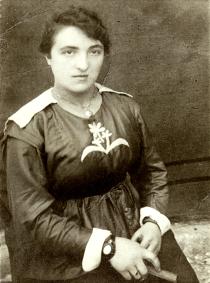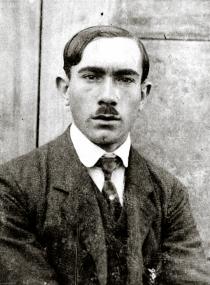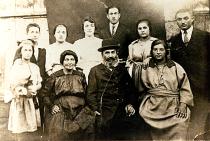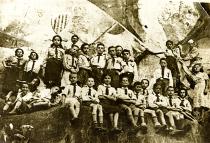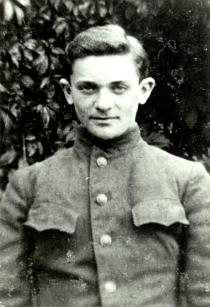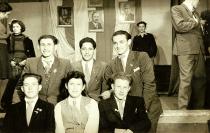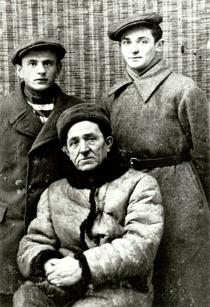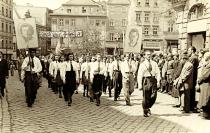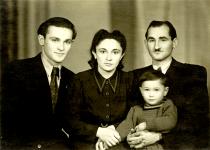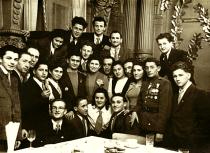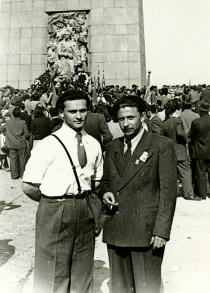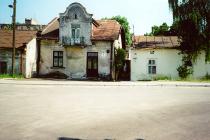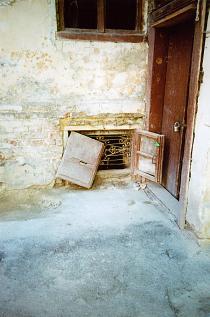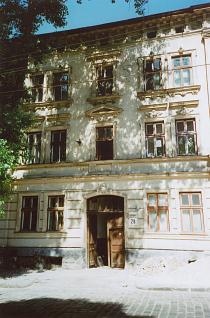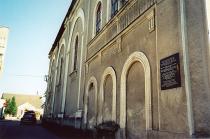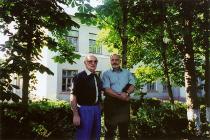This is a picture of me and my son Zbigniew Miedzinski in front of the place where our home used to be before World War II. The photo was taken in Horodenka in 2003.
Sometime in the mid-1930s my parents came to the conclusion that they needed their own place, and they started working towards building their own house. And they bought a site at 60 Rynek Street - either in installments, or perhaps my father was to pay it off in carpentry. That didn't mean my parents had got rich. No. But a house was a must; they had to make the effort. So there in Granddad's yard, my parents and Granddad Berl, my blind grandfather, made the bricks themselves. There was earth, sand, clay and horse manure. All that was mixed together in a pit and made into shapes, these rectangular blocks. And I remember that the yard was always full of those bricks. They dried in the sun. And that was the material used to build our house. The foundations were built of stones brought from all over the neighborhood. The peasants that did business with Father, who ordered carpentry work from him, had carts and collected the stones. That type of cooperation was called sharvark. And then the walls were built on top of those foundations with our bricks, and a few furnace-fired bricks were used as well.
When Pilsudski died, in 1935, we were already living in that unfinished house. My parents were very keen that the house should have a tin roof, and not a shingle or tiled roof, and they were successful. The first story and the second story were finished: two rooms and makeshift stairs. There were two rooms upstairs too. The most beautiful room, because it was sunny, was occupied by a more distant aunt, Sara, and her husband. They were to live there free for the rest of their lives, because she had lent $50 for the building of the house. We moved into the one room where there was a bread oven; there was a stove with hotplates on which meals were cooked, and then under the window was the carpentry bench and Father worked at that bench. Two rooms were rented out to some paupers. It wasn't much of an improvement, but we felt somehow more sure of ourselves, because we were in our own house. Just before the war Father even had a helper and bought new tools. Mama had a Singer sewing machine. The sub-tenant freed up a room and our situation improved. This was just before the war.
Our house looked sturdy and good, although it might have seemed a flimsy technology. It is no longer there. It was taken down by the neighbors when the Germans made our town Judenfrei, when we were driven out. The Ukrainians took the building materials and the tin from the roof. And I saw the stones and bricks scattered around when I went back to Horodenko in 1944. There was just a pile of rubble in the place where our house had stood.

